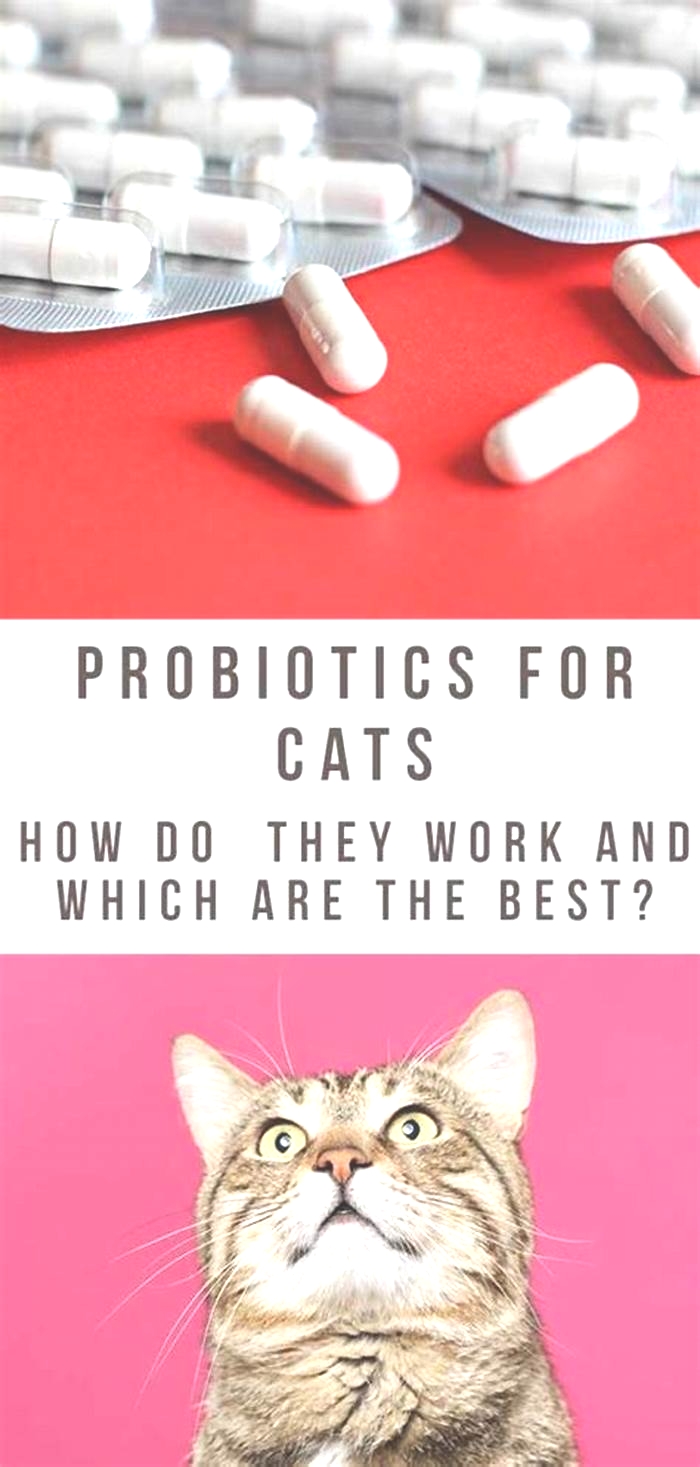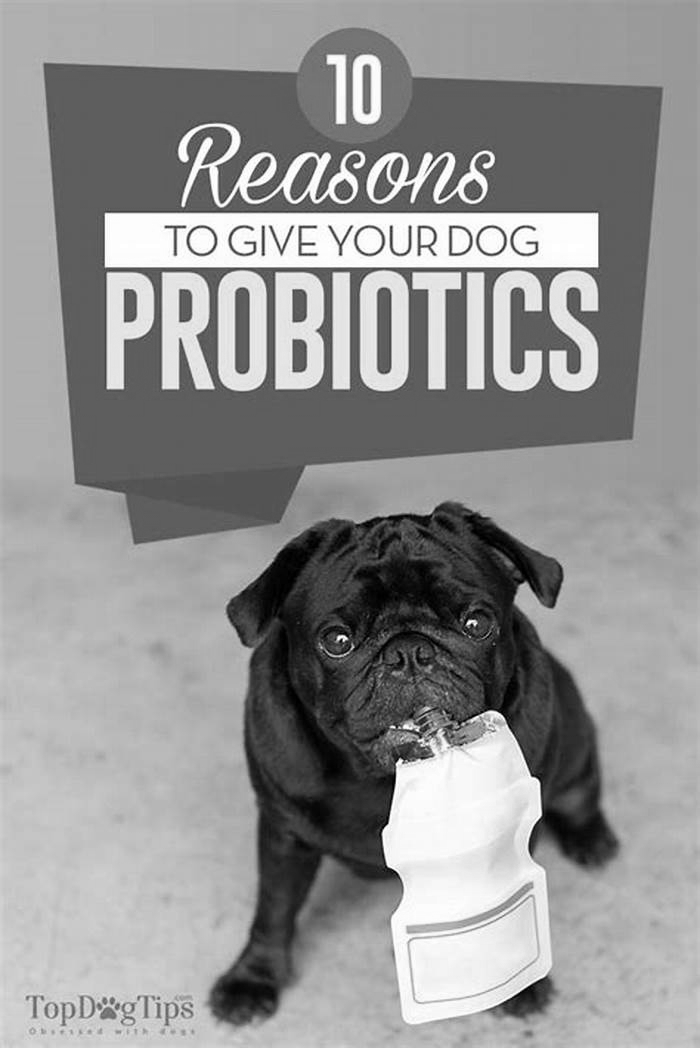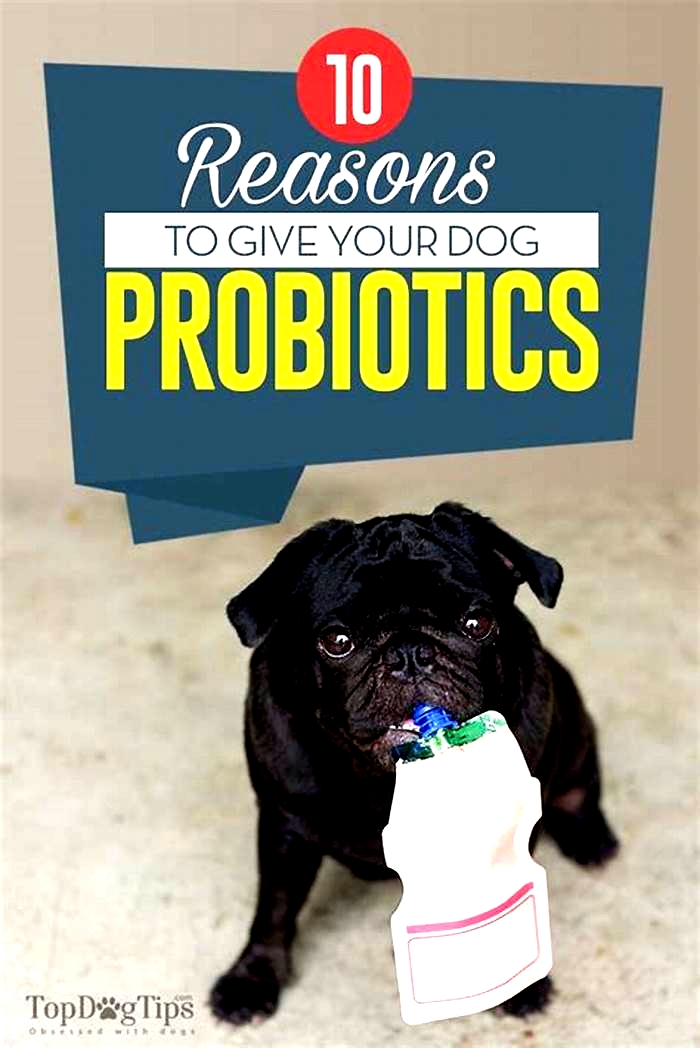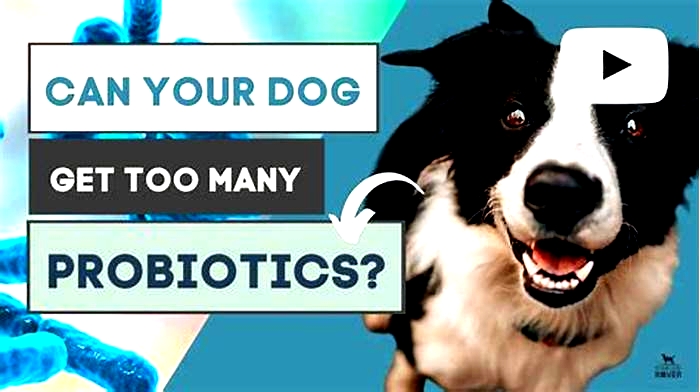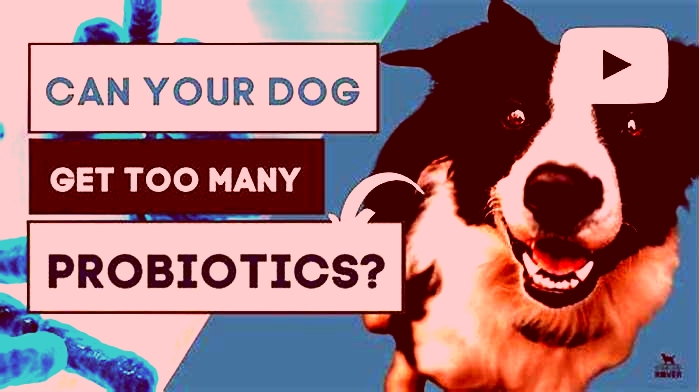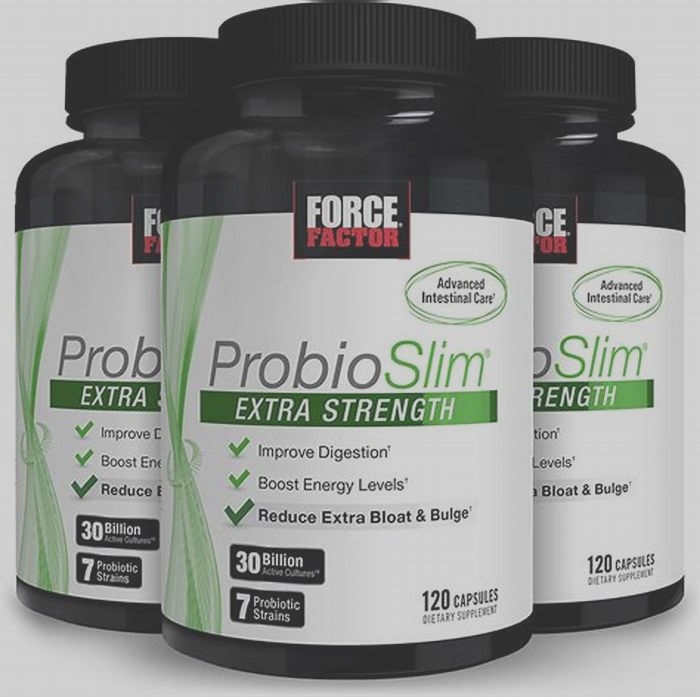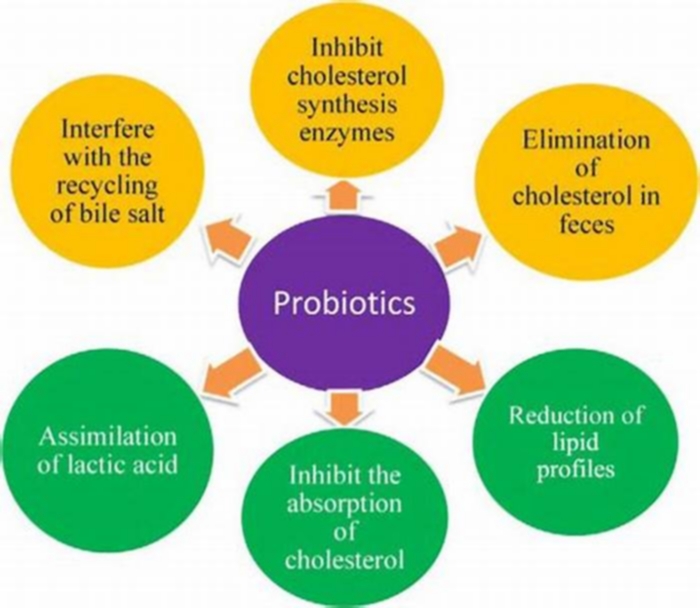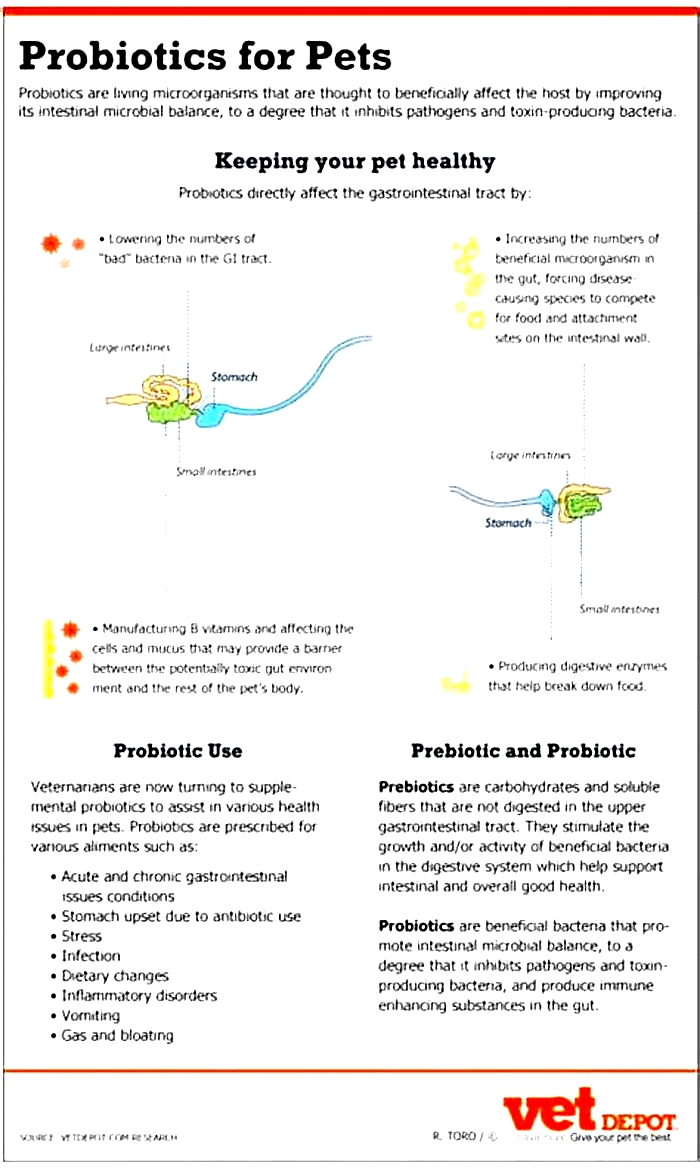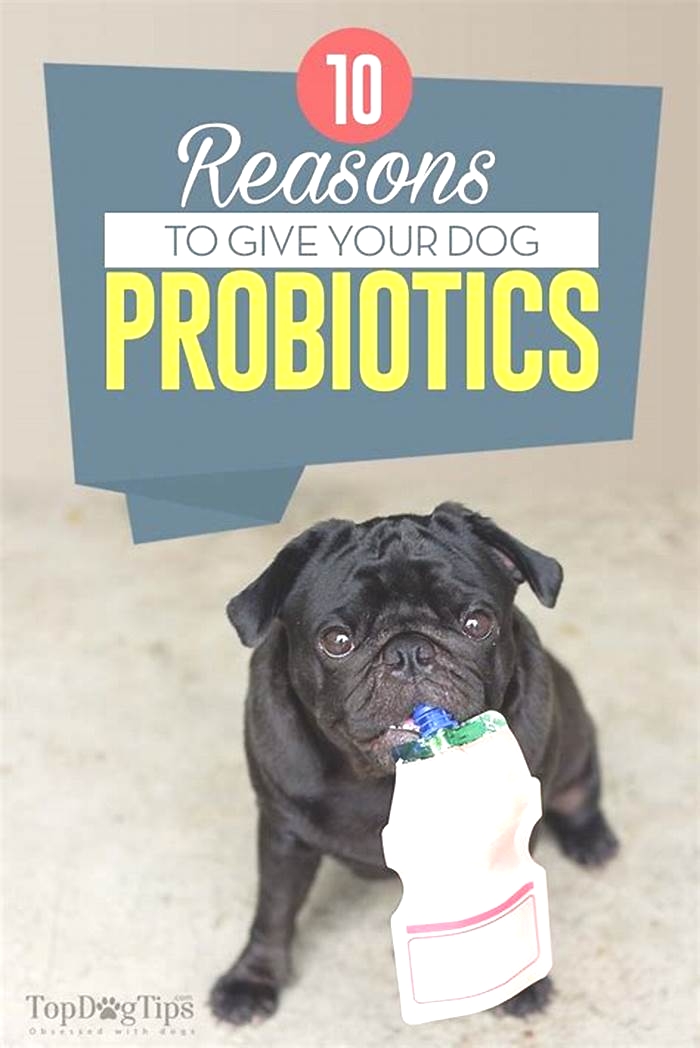Can I give my dog 2 probiotics a day
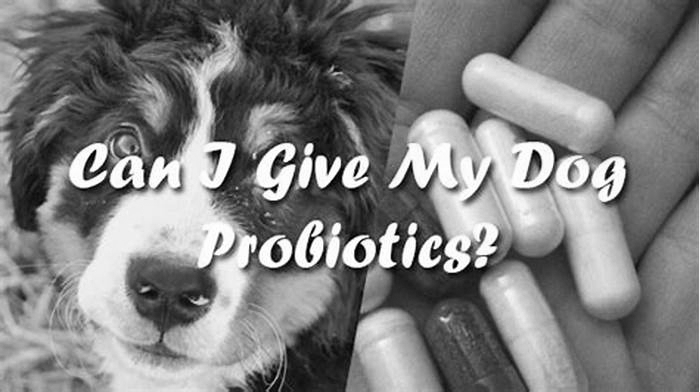
Should a Dog Take a Probiotic Every Day? Our Vet Explains
Probiotics are often discussed in the context of human health, but what about our canine companions?
Just like us, dogs have complex digestive systems teeming with bacteria, both good and bad. These beneficial bacteria play a crucial role in maintaining gut health and supporting the immune system. As a veterinarian, owners often ask me about the inclusion of daily probiotics in their dogs diet. Its a valid question, considering the benefits that probiotics have been shown to have in human medicine; after all a dogs health is just as important as our own.
The decision to give a dog probiotics every day hinges on several factors. Its not just about bolstering their gut health, but also considering their overall diet and nutrition. In some situations, daily probiotics can help manage and prevent digestive issues, promoting a more robust immune system.
However, its essential to recognize that every dog is unique. Different breeds, sizes, and existing health conditions need to be considered. Thats why its critical to consult with a veterinarian before starting any supplementation to ensure its appropriate for your pets specific dietary needs and health conditions. I always advise pet owners to be mindful of the potential risks and to choose the right probiotic with quality strains of good bacteria tailored to their dogs unique health profile.
Probiotics play an important role in supporting a dogs digestive and immune health.
The suitability of daily probiotic use varies with individual dogs, their diets, and overall health.
Consultation with a veterinarian is crucial for personalized probiotic recommendations and to avoid possible risks.
Probiotics are live microorganisms intended to have health benefits when consumed. Think of them as your dogs microscopic cheerleaders, supporting their overall health. They primarily reside in the digestive tract, particularly the colon, where they play a crucial role in processing food and defending against harmful bacteria.
Your dog has a complex ecosystem inside them, and these probiotic bacteria help keep it thriving. Probiotics can help with the digestion of food, promote a healthy microbial environment and may even help in the prevention and management of certain intestinal diseases.
Definition and Types of Probiotics
So what are probiotics? Well, simply put, theyre friendly live microorganisms or bacteria, and when I say micro, I mean these little guests are invisible to the naked eyebut they pack a punch in the wellness department when given in just the right amount.
There are a few main strains of these good bacteria that we need to be aware of when speaking about probiotics:
- Lactobacillus: Youve likely heard of this one, as its often found in yogurt and can help with diarrhea and may boost the immune system.
- Bifidobacterium: This is found in some dairy products. Theyre good soldiers fighting the bad bacteria.
- Enterococcus: This group often features in fermented dietary products, battling problems like upset stomachs.
They come in various forms, from powders and capsules and they might even be included in Fidos kibble.
How Probiotics Work in the Digestive System
Have you ever wondered how these tiny probiotic organisms work once theyre inside your furry friends gut? Well, lets dive into the fascinating world of a dogs digestive system and uncover the role probiotics play.
Firstly, probiotics help to balance the gut microbiota, which is filled with a diverse community of bacteria and other microorganisms. This microbiota is a bit like a bustling city inside your dogs belly, they help with the digestion of food buy releasing enzymes and are crucial for a strong immune system and efficient metabolism.
But did you know that whats happening in the gut can also affect your dogs mood and behavior? Thanks to the brain-gut axis, these probiotic critters can influence and regulate not just gastrointestinal health, but also aspects like behavior, anxiety, stress response, and cognitive functions.
Benefits of Probiotics for Overall Health
Ever wonder how these tiny microorganisms can improve your dogs health? Well, let me, as a veterinarian, fill you in on the perks these microscopic marvels offer:
- Improved Digestive Health: Probiotics help maintain the balance of good bacteria in a dogs gut. This can aid in digestion and can be particularly beneficial for dogs with gastrointestinal issues such as diarrhea, constipation, or gas.
- Boosted Immune System: A significant portion of the immune system is located in the gut. By promoting a healthy balance of gut bacteria, probiotics can strengthen a dogs immune system, helping them fight off infections and diseases more effectively.
- Healthier Skin and Coat: Probiotics can improve skin and coat health by reducing the occurrence of allergies and skin irritations, leading to less itching and a shinier coat.
- Better Nutrient Absorption: A balanced gut flora aids in the efficient absorption of nutrients from food, which is crucial for overall health and well-being.
- Reduced Effects of Stress and Anxiety: Some studies suggest that probiotics can have a calming effect on dogs, reducing anxiety and stress-related behaviors.
- Management of Allergies: Probiotics can help manage allergies by reducing the bodys inflammatory response and regulating the immune system.
- Weight Management: By improving digestion and nutrient absorption, probiotics can help maintain a healthy weight in dogs.
- Reduction of Bad Breath: Probiotics can sometimes reduce bad breath in dogs by improving gut health, which in turn can influence oral health.
- Overall Health and Longevity: A healthy gut can contribute to overall health and potentially increase the lifespan of dogs by preventing chronic diseases and promoting vitality.
Factors That May Disrupt a Dogs Gut Flora
Just like us, dogs can experience an upset in their gut flora and this can have significant consequences for their general health. Here are some of the common culprits that can throw a dogs digestive system out of whack:
Stress
Whether its moving to a new home or the absence of a family member, stress can result in inflammation in your dogs intestines and mess with your dogs gut balance.
Illness or Infection
When your dog is fighting off something nasty, like a virus or bacteria, their gut flora can suffer collateral damage.
Medication
Antibiotics are life-savers, but they dont discriminate; they can wipe out good bacteria along with the bad. Remember, a course of antibiotics often results in an imbalance of healthy gut bacteria, leading to digestive problems.
Diet Change
A sudden swap of kibble can lead to a gut rebellion. Try to make any diet transitions gradual to keep their bellies happy.
Aging
As dogs get older, their digestive systems can become more sensitive and their gut microflora becomes less diverse. Its a natural part of aging, but we need to be mindful of it.
Should dogs take probiotics daily?
So now that you know what benefits probiotics could have for your dog, how often should they be taking them?
Routine and Regimen: Just like us, dogs can benefit from a stable gut environment. Probiotics are like your dogs internal gardeners, keeping the digestive flora finely tuned. Your pup might not need a daily dose of probiotics, but for those with tummy troubles or during certain life challenges think antibiotics use or a change in diet a daily probiotic can help maintain balance.
- Are all dogs the same? No, every dog is unique! Some might do well with a daily dose, while others may only need an occasional supplement.
- Veterinary Recommendation: Check with your vet on the best probiotic strategy for your pooch. I often start with the probiotic supplement directions and then adjust as we learn more about how your dog responds.
- Quality Matters: Pick a high-quality probiotic formulated specifically for dogs. Human supplements arent always suitable for our four-legged friends.
In short, daily probiotics can be a boon for some pups but may not be necessary for all. Your dogs health history and current conditions are the roadmap use that to navigate the probiotic journey. You could start by introducing a probiotic into your dogs diet and monitoring their response.
Potential Risks and Drawbacks of Daily Probiotic Use
While daily probiotic use is generally safe for dogs, every dog is unique and some might experience side effects such as gas, bloating, or loose stools. These symptoms are usually short-lived but could be uncomfortable for your furry friend.
Quality and efficacy
The quality of probiotics can vary significantly. Its crucial to choose a product that has high-quality strains and enough viable bacteria. Unfortunately, some products out there dont live up to their claims, which means your dog might not get the intended benefits and could even end up worse than they started.
Drug Interactions
Just like in humans, probiotics can interfere with how your dogs body handles other medications or supplements, potentially affecting their absorption or effectiveness.
Overdose
We also have to consider the possibility of an overdose. Dogs can get too much of a good thing. Multiple probiotic sources or too much could lead to issues like diarrhea, vomiting, or even metabolic disorders.
Cost
Lastly, lets talk about the cost. Probiotics can be a bit pricey, and not all pet parents find them budget-friendly. So, its a balancing act between potential benefits and the cost involved.
So, while Im all for supporting our canine companions health, its important to weigh these factors carefully. Chat with your vet to pinpoint the best probiotic strategy for your dog.
Expert opinions on the frequency of probiotic supplementation
When it comes to probiotic supplementation for dogs, my colleagues and I often weigh in with diverse viewpoints. You might wonder, Should I be giving my furry friend probiotics every single day? Well, lets dig into some expert perspectives.
Daily Supplementation
Some of my peers advocate for daily probiotics as part of a dogs diet. The benefits can be ongoing maintenance for their digestive health and immune support, especially in dogs with chronic conditions. Consistency can be key for the best results. For instance, probiotics for dogs are often recommended regularly to maintain balance in your dogs gut flora.
Use As Needed
In contrast, there are those who suggest a more situational approach. Probiotics might be recommended during certain times such as post-antibiotics treatment, experiencing diarrhea, or undergoing stress that might throw off their gut balance.
Intermittent Dosing
Some experts believe in an intermittent schedule, giving their canine patients probiotics every few days or alternating types. This approach can be effective for maintaining a variety without overwhelming their system.
And then there are vets who may recommend not to use probiotics unless specifically indicated or prescribed. Its not always a one-size-fits-all situation, and each dogs health profile can dictate a unique probiotic plan.
As a vet, I advise pet parents to carefully consider their dogs individual needs. Reactions to probiotics can vary, and what works for one may not be ideal for another. Taking cues from your dogs health and consulting with your vet is always the best course of action.
Choosing the Right Probiotic for Your Dog
Probiotic supplements for dogs are booming in popularity, with numerous benefits for your dogs gastrointestinal system. But with the wealth of choice comes a bit of a puzzle: Which one is the perfect fit for your furry friend?
First, consider the ingredients. You want a probiotic with strains like Lactobacillus acidophilus, Enterococcus faecium, or Bifidobacterium animalis inhabitants naturally found in the canine gut. These strains could help maintain a healthy dog by balancing the gut microbiome, particularly after disruptions like antibiotics treatment.
Next, youll want to look for probiotic supplements or dog foods that contain these strains. There are options like powders, chews, or a capsule think about what would seamlessly integrate into your routine. Are your pups a bit finicky? Flavor might be the deciding factor.
Now, lets talk puppies. Their tummies can be sensitive; hence, a gentle formula designed for their developing digestive system is key. And for dogs with specific issues, like constipation, consider a probiotic with additional fibers or vitamins.
One frequent question I get is, Can my dog have human probiotics or foods like kefir? While some human formulas may be safe in moderation, canines have different needs, so its usually best to stick to those crafted for dogs.
Finally, watch out for side effects. While rare, an adjustment period might occur. If you see anything out of the ordinary, have a chat with your vet.
Factors to Consider When Selecting a Probiotic
Hey there, fellow dog lovers! As a veterinarian, I frequently get asked whether our furry friends should take a daily probiotic. If youre considering it, Ive got some pointers on what to look for:
Microorganisms Matter
Its important to check the probiotic for a variety of helpful bacteria. I recommend looking for Lactobacillus, Bifidobacterium, and Enterococcus. And lets talk numbers youll want a high CFU count for a more potent punch of bacteria.
Value and Quality
You dont want to skimp on your pups health, right? Aim for products with a seal of approval from organizations like the NASC to ensure youre getting good quality. Oh, and keep an eye on that expiration date!
Tasty Treat or Tricky Tablet?
Think about how youll be giving your dog their probiotic. If theyre fussy, a flavored chew might just be the ticket. Whatever you choose, stick to the recommended dose and chat with me or another vet if youre unsure.
Whats the Goal?
Probiotics can target different issues, from gut health to mental well-being. Pinpoint what your dog needs and select a product that addresses it. And keep an eye on how theyre doing if theres no improvement, it might be time to try something new.
Dosage Guidelines for Different Dog Breeds and Sizes
When it comes to keeping our furry friends feeling their best, probiotics can be a game-changer! You might be wondering, how much is enough? or is it too much? Its crucial to tailor the probiotic dosage to your dogs individual needs, which are influenced by their breed, size, and even age.
Lets break it down by size:
| Dog Size | Starting Daily Dosage |
|---|---|
| Under 20 lbs | 1 Billion CFUs |
| 21-50 lbs | 2-4 Billion CFUs |
| Over 50 lbs | 2-5 Billion CFUs |
Remember, this is a starting point. Dogs are as unique as us humans! If your pawed pal is on the petite side but has a tummy of steel, they might need a different approach than a same-sized buddy with a sensitive gut.
Start with a lower dose and work your way up until it fits just right. And, if your dog has a health condition or special circumstances like a diet change, chat with your vet before adding a new supplement.
Natural Sources of Probiotics in a Dogs Diet
When we talk about keeping our pups healthy, incorporating natural probiotics in their diet comes to mind, doesnt it? Im sure youre wondering, What are some natural sources of probiotics for dogs?
Heres a quick list of dog-friendly options:
- Yogurt: Its a fantastic choice, just make sure its unsweetened and plain to avoid any upset bellies.
- Kefir: This fermented milk beverage is similar to yogurt but with a unique set of probiotic cultures.
- Certain Cheeses: Stick to varieties that are safe for dogs, like cheddar, mozzarella, and cottage cheese, in small quantities, of course.
Not only do these foods help colonize your dogs gut with good bacteria, theyre also packed with nutrients like protein, calcium, and vitamin B12.
A Word of Caution not all fermented goodies are pooch-friendly. Foods containing garlic, onion, or chocolate are a big no-no. Always, and I repeat, always check the label before sharing to keep your fur buddy safe. Fermented foods might also not agree with every pup, start with a small amount and monitor for signs like diarrhea or tummy upset.
Consulting with a Veterinarian Before Starting Probiotics
Before your furry friend starts on probiotics, its crucial to have a chat with your veterinarian. Why, you ask? Well, although probiotics are usually safe, theyre not miraculous cure-alls. Its important to ensure were not overlooking an underlying condition that needs attention.
If your dog is lethargic, losing weight or is experiencing diarrhea or vomiting then there could be an underlying cause that needs addressing. Probiotics can be a great addition to a dogs diet but they should not be used as a substitute for proper veterinary treatment.

